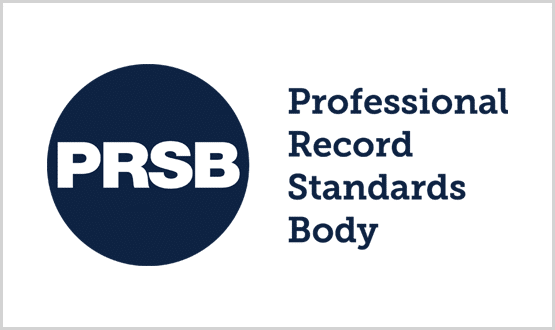PRSB publishes guidance on medicine information sharing
- 2 May 2019

The Professional Record Standards Body (PRSB) has published guidance on medicine information sharing.
PRSB has worked with NHS England and NHS Digital to produce clear guidance for recording and sharing standardised computer-readable information between hospital, GP and community-based services.
It is hoped this will reduce the current practice of sharing paper-based medicines information and re-keying it into computers which can lead to errors.
Currently, hospitals, GPs and other community-based services use different methods of prescribing so that when a patient transfers from one setting to another, clinicians need to manually translate prescribing information to ensure the correct medicines, dosages and timings are identified and administered.
Professor Maureen Baker, chair of the PRSB, said: “Improving medicines information sharing by computerising processes and replacing paper-based ones that were prone to errors is a significant achievement.
“Thanks to the combined efforts of NHS England, NHS Digital and the PRSB, prescribing for patients should be safer, more efficient and fewer medicines will be wasted.
As part of the process, the PRSB, the organisation responsible for the development of standards for digital care records, was asked to undertake a consultation with clinicians, professionals and people who will be using the standardised guidance to test whether it is safe, workable and would gain widespread support and acceptance.
Simon Eccles, national CCIO, added: “The benefits to patients and the system are significant and for this reason, this project has been identified as the top priority of the NHS England interoperability programme.
“Health and care providers should prioritise implementing this guidance urgently.”
As well as publishing medicine information sharing guidance, the PRSB has also published a number of other standards, including record location and digital maternity records.
The news has been welcomed by Dr Michael Brooks, an NHS doctor and the CMO of PatientSource.
He said: “Throughout my career I have seen catastrophic errors – errors where patients have died – all because doctors and nurses are relying on handwritten paper notes and paper handover sheets to manage patient care. In this day and age this is completely preventable and unnecessary. The technology exists to digitise the NHS but it isn’t as simple as this, the technology has to be designed to make doctors’ nurses’ lives easier in order to be successfully adopted in their time-pressured lives. These solutions cost money and at a time when the NHS is cash-strapped investment in IT systems is not always a priority meaning that there is a mixed economy with some organisations digitised and some that are not.
“The guidance from PRSB is a great step towards ensuring interoperability between systems and is vital if we are going to reap the benefits of a digital NHS, however, there still needs to be capital investment to ensure that all health and social care organisations, from GPs, dental practices, and pharmacies through to mental health services and acute hospitals, invest in electronic patient record and e-prescribing solutions.
“Open interoperability should be a fundamental requirement of all clinical applications the NHS procures.”




